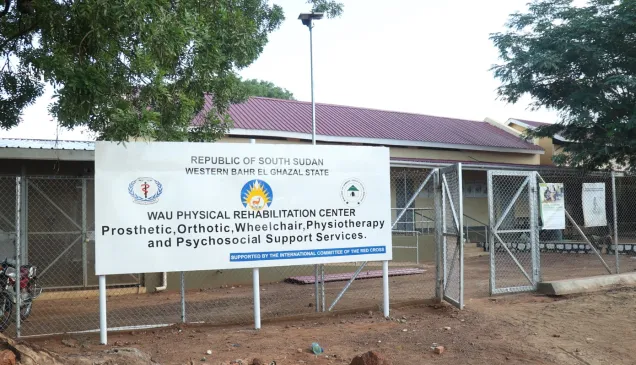Kabul (ICRC) – A record number of disabled Afghans – more than 12,000 people – sought assistance for the first time in 2018 at physical rehabilitation centres run by the International Committee of the Red Cross (ICRC) across Afghanistan.
Alarmingly, despite the record level of assistance provided, many more people remain in need.
Last year was the ICRC's 30th year of running rehabilitation programs in the country. More than 22,000 artificial limbs and other orthopaedic devices – also a record number -- were provided in 2018, together with 2,000 wheelchairs, 18,000 crutches and countless physiotherapy sessions.
"The record number of Afghans seeking rehabilitation assistance is a reflection of the huge levels of need," said Alberto Cairo, ICRC's physical rehabilitation program manager in Afghanistan. "Even with all of the people we helped, we aren't coming close to being able to assist everyone in need."
Since ICRC opened its first rehabilitation centre in Kabul in 1988, disability is more openly spoken about and Afghan authorities say addressing the issue is a priority. Still, prejudices and discrimination remain, as opportunities for social reintegration and jobs remain limited.
"The disabled population suffers from a lack of job, educational and rehab opportunities, resulting in a lack of self-confidence and self-esteem," said Cairo, who began working with the ICRC's rehab program the year it opened. "Nevertheless, they are not rejected by community and family. Still, they need more opportunities to re-start life."
The ICRC facilitates the reintegration of disabled people into their communities through vocational training, micro-loans to start small businesses, and sports programs like wheelchair basketball, futsal and recreational activities. The ICRC also trains and employs people with disabilities in its physical rehabilitation centres; almost all 750 staff are former patients trained and employed as physiotherapists, nurses, orthopaedic technicians, administrators and logisticians.
"These centres have become facilities for disabled people managed by disabled people," Cairo said.
Although the situation in Afghanistan today causes immense suffering for civilians, thousands of the disabled have seen their lives improve as a result of the ICRC's physical rehabilitation program.
"I cannot imagine how my life would be without the assistance of the ICRC. My life is difficult, very difficult, but the ICRC's Home Care Program has made it bearable. I feel that my family and I we are not forgotten," says Abdul Rasaq, a 45-year-old paraplegic patient.
Facts about ICRC's rehabilitation program:
ICRC patients have become disabled from landmines, explosive remnants of war and gunshot wounds. We also assist people with congenital conditions, diseases and those injured in accidents.
About 1.5 million people of Afghanistan's estimated 33 million population have some kind of physical disability, according to a national survey in 2015.
The ICRC started assisting disabled people in Kabul in 1988 by providing them with limb-fitting services and physiotherapy sessions to help them regain their mobility.
Today the ICRC runs seven physical rehabilitation centres: in Kabul, Mazar-i-Sharif, Herat, Jalalabad, Gulbarhar, Faizabad and Lashka Gah.
For further information, please contact:
Robin WAUDO, ICRC Kabul, +93 729 140 510
Sanela BAJRAMBASIC, ICRC Geneva, +41 79 217 32 17
Graziella LEITI PICCOLI, ICRC Bangkok, +66 81 950 12 70



